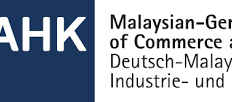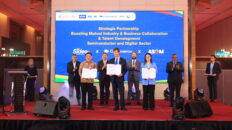PETALING JAYA, 30 December 2024 (Bernama) — The Malaysian Plastics Manufacturers Association (MPMA) strongly disagrees with the recently announced 14% increase in the base electricity tariff by Tenaga Nasional Berhad (TNB). This policy, poses significant challenges to the plastics industry, which is already grappling with mounting operational costs and economic uncertainties.
The proposed base tariff hike attributed to TNB’s projected CAPEX is unwarranted. The anticipated increase in electricity demand, especially from data centers and other high-consumption sectors, is expected to generate higher revenue streams for TNB. These revenues should be sufficient to offset the rising CAPEX without imposing additional financial burdens on businesses and households. Furthermore, the argument for base tariff adjustments due to expected coal and gas price fluctuations is equally concerning. The Imbalance Cost Past-Through (ICPT) mechanism was introduced to manage such cost variances. It is imperative that TNB utilizes the ICPT mechanism to cover these fluctuations rather than passing them onto businesses through higher base tariffs.
The plastics manufacturing sector is particularly vulnerable to electricity cost increases. As an energy-intensive industry, most players in the sector operate on razor-thin profit margins of just 3-6%. Additional electricity costs would exacerbate the existing financial strain, jeopardizing the sustainability of an industry predominantly composed of small and medium enterprises (SMEs). SMEs, which constitute 90% of the plastics sector, are already dealing with numerous challenges, including:
· An increase in logistics costs due the hike in the Sales and Services Tax (SST).
· Minimum wage increase from RM1,500 to RM1,700.
· Upcoming mandatory EPF contributions for foreign workers.
· Impending rationalization of fuel subsidies.
The cumulative effect of these pressures, combined with a potential rise in electricity tariffs, is too much for the industry to bear.
While MPMA acknowledges the ongoing liberalization efforts within the Malaysian power sector, we strongly urge the government to expedite the opening of the transmission and distribution segments to competition. In advanced economies like the United States and United Kingdom, competition in these areas has driven efficiency, reduced costs, and enhanced overall competitiveness. Adopting a similar approach in Malaysia would provide businesses with a more equitable and sustainable power supply framework.
The MPMA appeals to TNB and the government to reconsider the base electricity tariff increase. A balanced approach that factors in the challenges faced by energy-intensive industries, particularly SMEs in the plastics industry, is crucial to maintaining the resilience and competitiveness of the Malaysian economy.

Corporate, Economic Impact, ESG







